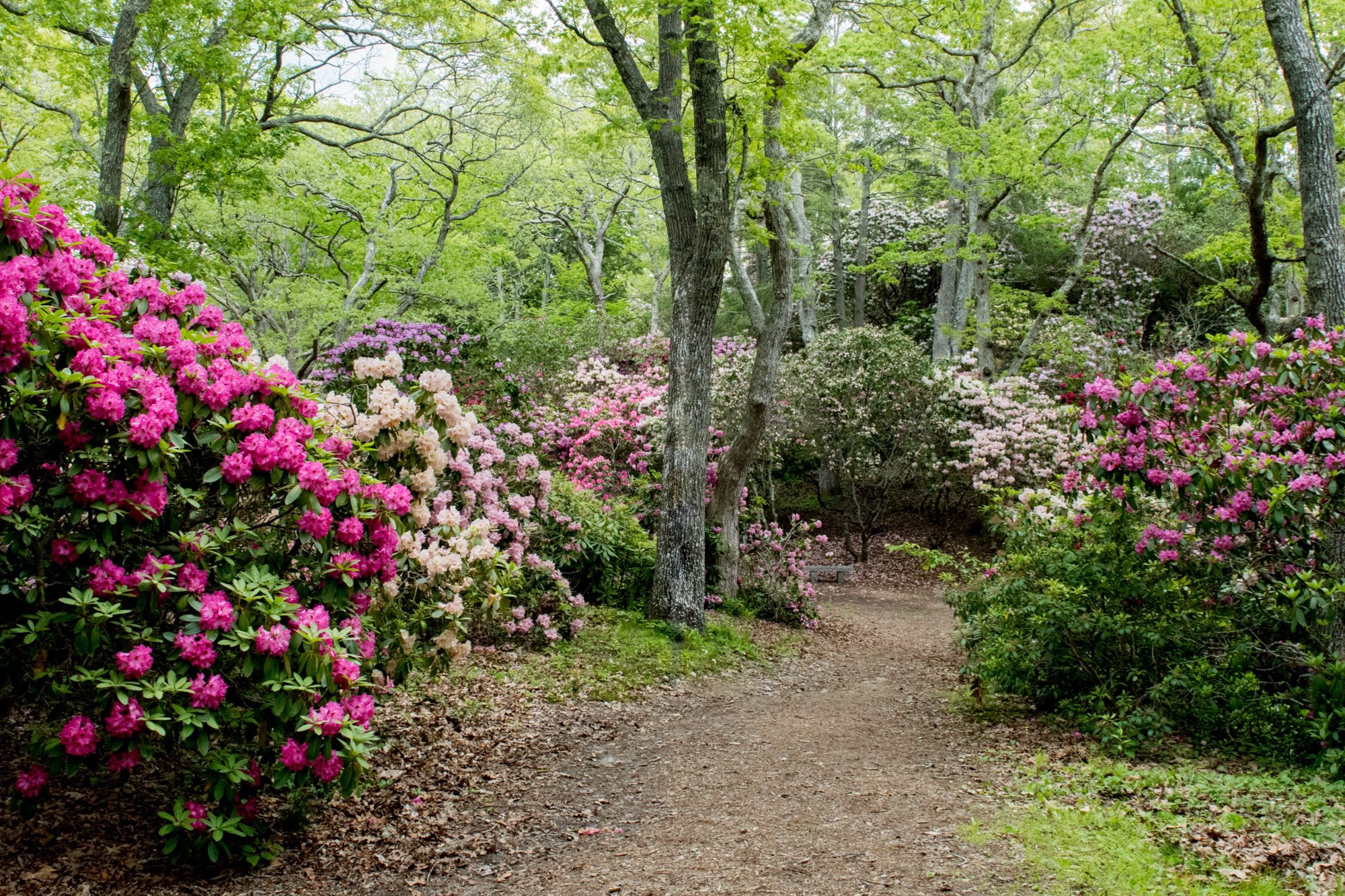Helping Your Garden Through a Drought
By: Les Lutz, Director of Horticulture
The drought we are in is serious. The State of Massachusetts has declared the Cape to be in a Level 1 – Mild Drought. I might argue that we are actually in a worse situation than the declaration indicates. I’m certainly not a hydrologist and not an expert on droughts, but I can see when driving across the Cape that the situation is dire. From a standpoint of plant health, everything that is not irrigated is suffering and, in some cases, the suffering is extreme. The winds and high temperatures we’ve had recently have only exasperated the problem by dehydrating plants even more. Combined with our sandy soils makes the situation worse.
In many areas, shrubs are dying, and, in some areas, trees are dying. The immediate concern, from a gardening perspective, is keeping garden plants alive. There are already watering restrictions for much of the Cape and likely more restrictive measures will be coming if we don’t start seeing substantial rain, soon. But this is late July and historically rain in the summer can be spotty at best. We’ll be lucky to get any rain between now and September when the weather patterns start to change with the seasons.
What can you to save your garden? Water, water and water, and then water more. The priority should be to keep plants alive. The problem is how to do that and not waste water. First, I would prioritize garden plants over lawns. Lawns use large amounts of water and are relatively easily replaced (reseeded in the fall). Shrubs and herbaceous perennials are harder to replace and therefore should be watered, if possible. Plant native species, when possible, but understand that even native species are suffering in this extreme drought.
Ideally, water should be applied overnight using drip irrigation. Several manufacturers make drip tubing that can be installed permanently and covered with mulch. The mulch further conserves water by helping to reduce evaporation and forcing the water into the soil and root zone. One company that makes high-tech drip systems is Netafim. The emitters are typically spaced every 12” and apply water at the rate of .9 gallons per hour (per emitter). This allows for slow water application that soaks the plant without wasting water.
Not watering your garden can be devastating. This drought will certainly kill many plants. But if plants do survive, they’re going to go into the winter under extreme stress and may not survive the winter. The other consideration is that we are in the main growth season, and our growing season isn’t a long one anyway. So not watering means we’re losing an entire season of growth.
I am acutely aware of the water situation on the Cape. We rely on groundwater for our existence and water restrictions are in place to protect that resource. Luckily the aquifer is typically replenished over the winter. But it is still a finite resource and in periods of drought, conservation is critical. Water should be applied using soakers and only at night. We will hopefully see rain again soon.








